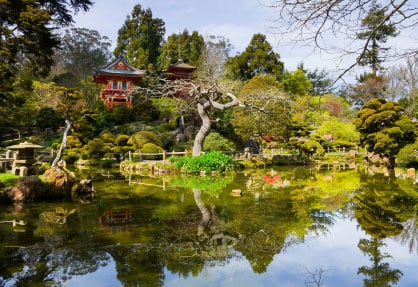
3 Ways in which San Francisco Leads the Green Movement
March 28, 2012

San Francisco is one of the most environmentally conscious cities in the world according to a list by grist.org, an environmental news website. Ranked at number 8, Grist ranked international cities on the strides each one has taken towards eco-friendly and greener lives.
Why Is The Bay Area So Green?
1. Public Transportation
- Only half of all San Francisco residents rely on taking a privately owned vehicle as their main form of transportation. That means the rest of the population relies on public transportation, bus, or foot to commute.
- In 2005, a third of commuters took advantage of the public transportation, and the rest relied on their own cardiovascular health to get them to work each day.
- San Francisco not only is run by the predominantly used San Francisco Municipal Railway (Muni), they have a light rail, subway system (the Muni Metro), and a bus system that includes trolleybuses, standard buses, and diesel hybrid buses.
- All of these forms of transportation truly make this city an innovator in the green movement.
2. It is Actually Green
- San Francisco has over 200 Parks that are preserved by the San Francisco Parks & Recreation Department.
- About 17% of San Francisco is a park or green space (we bet making for some happy local dogs!).
- San Francisco has more than 350 native plants and fifty-six species of bees
- The Parks and Rec department maintains both native and local exotic trees in the area
3. Reduce, Reuse, Recycle
- San Jose recycles a greater percentage of its waste than any other city in the United States.
- In 2007, San Francisco was the first city in the United States to ban the use of traditional plastic grocery store bags
- They have vowed to impose fines of up to $1,000 by the year 2020 for those who refuse to recycle or who do not properly separate their recyclable items
- Under the same ordinance, residents will be provided three separate bins: one for trash, one for recyclables, and one for compost.
- As of 2009, tossing food into the trash will get you fined as the separation of trash and compost dramatically cuts the city's garbage costs. The separated compost is then sold to Bay Area farms and vineyards.
For more information about the laws and ordinances surrounding San Francisco's leading movement in recycling, please visit sfencironment.org to read more. There you can also find out what, when & how to recycle.







